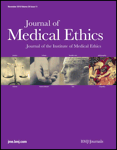 How much money does scientific fraud waste?
How much money does scientific fraud waste?
That’s an important question, with an answer that may help determine how much attention some people pay to research misconduct. But it’s one that hasn’t been rigorously addressed.
Seeking some clarity, Andrew Stern, Arturo Casadevall, Grant Steen, and Ferric Fang looked at cases in which the Office of Research Integrity had determined there was misconduct in particular papers. In their study, published today in eLife: Continue reading “Research misconduct accounts for a small percentage of total funding”: Study






